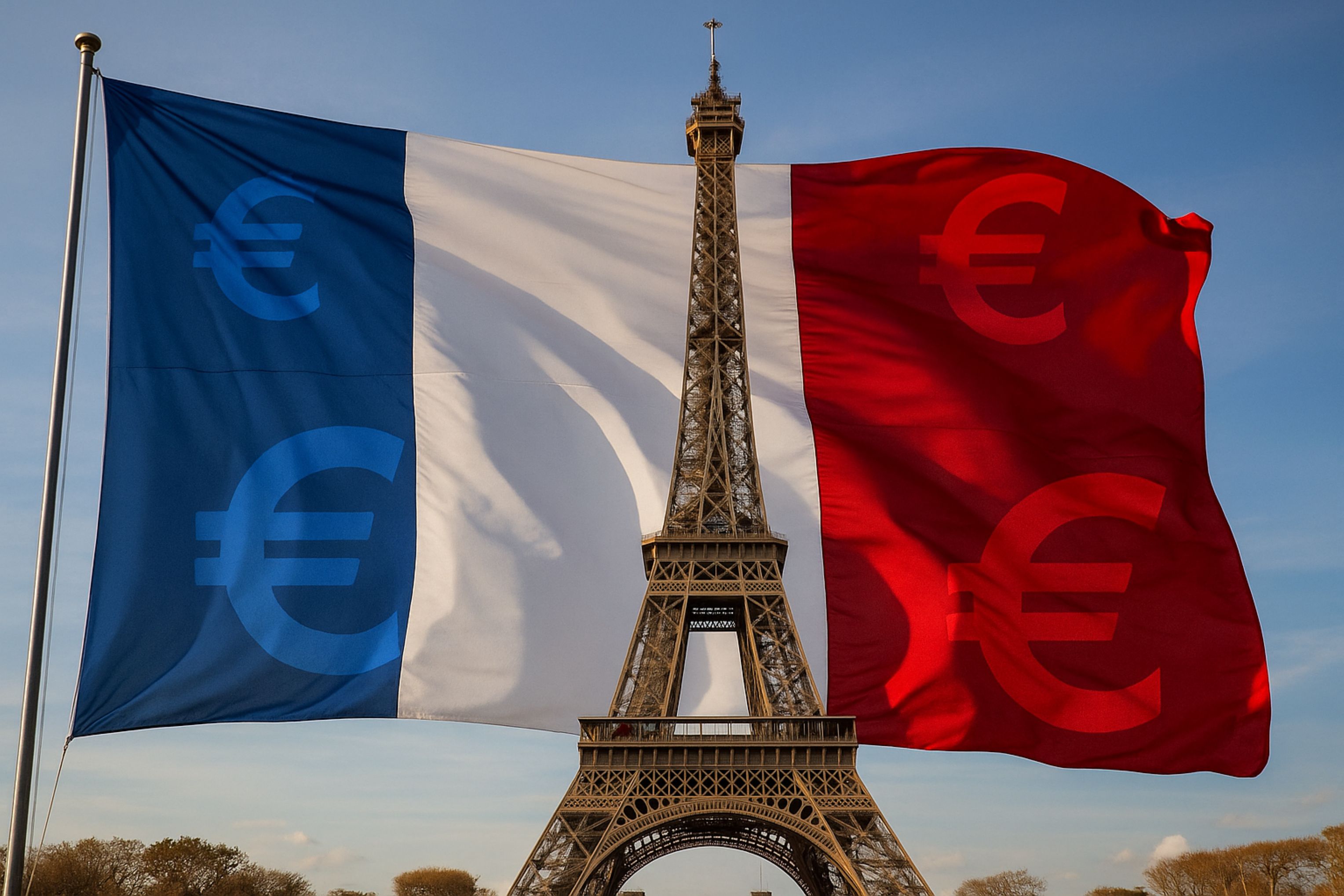General Dynamics (GD) Fundamental and Technical Stock Analysis: Can the Defence Prime Keep Outperforming?
$364.70
04 Mar 2026, 12:54

Ai Generated

Mounting debt, political deadlock and bond market anxiety spark fears for France’s financial future
A Nation in Crisis
France is facing a deepening political and economic crisis, as its government teeters on the edge of collapse amid rising debt levels, market turmoil, and an impending confidence vote. With the sixth Prime Minister since 2020 now under threat, France’s unstable political landscape is fuelling concerns not just domestically, but across global financial markets.
The Cost of Political Paralysis
The immediate concern? France's persistent overspending and its apparent inability to rein it in. Bond markets are reacting strongly. Yields—essentially the price of government borrowing—are rising sharply in both the UK and France, but France’s surge is drawing particular concern.
This fiscal imbalance means more of the national budget is being diverted to service debt, leaving less for public investment or economic stimulation—just when the economy can least afford the squeeze.
Looming Confidence Vote and Fallout
Prime Minister François Bayrou has proposed a €44 billion (£38.1 billion) austerity plan involving public spending freezes and the elimination of two national holidays. However, this has met resistance from opposition parties and unions, leading to a likely no-confidence vote on Monday.
Should Bayrou be ousted, President Emmanuel Macron may attempt to install a new PM rather than call early elections—though public pressure is mounting for a nationwide vote.
Key concerns include:
Could France Really Need an IMF Bailout?
Last week, Finance Minister Eric Lombard briefly floated the idea of IMF support—comments later retracted. Still, they underline how serious the crisis has become. Yields on French 30-year bonds have hit their highest level in over 16 years, signalling a lack of investor faith.
What This Means for the Economy and Markets
If France cannot stabilise politically, the consequences may ripple across Europe. Investor nervousness could continue to push bond yields up, leading to even higher borrowing costs. This may impact:
Markets thrive on certainty—right now, France offers anything but.
Conclusion: A Critical Moment for France and Europe
France’s debt crisis is more than a domestic issue. It is a warning shot to other heavily indebted nations, including the UK, about the risks of political gridlock and fiscal mismanagement.
Unless France can restore confidence quickly, the consequences could include market sell-offs, lowered credit ratings, and broader instability across the Eurozone. Investors should monitor developments closely. In the short term, French assets may face downward pressure, and confidence in Eurozone bonds could take a hit.
Stability may only return with real political change—or swift market intervention.
Sources: (Sky.com, Reuters.com)